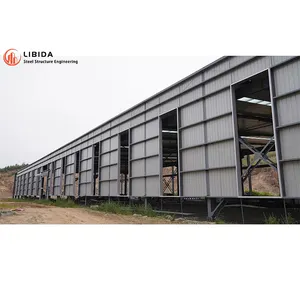Exploring Standard Modular Accommodation
The concept of standard modular accommodation has revolutionized the approach to modern housing and commercial space solutions. This category encompasses a versatile range of prefabricated structures, primarily designed to offer efficient, scalable, and flexible living or working spaces. These units are widely recognized for their adaptability in various settings, from residential to commercial uses.
Types and Applications
Modular accommodations come in several types, each serving distinct purposes. The prefabricated container houses are a popular choice for their robustness and ease of transport, making them suitable for temporary housing or offices. On the other hand, prefab modular homes offer a more permanent solution, often utilized for residential projects, dormitories, and even as bespoke commercial spaces. Their applications are diverse, ranging from quick deployment in remote areas to creating suburban neighborhood developments.
Design and Features
The design of modular living accommodations is a testament to modern architectural innovation, offering options from minimalist to contemporary aesthetics. These units can come with various features, including but not limited to graphic design services and total project solutions. The emphasis on design flexibility allows for a personalized touch, catering to the specific needs of different projects.
Construction Materials
Materials used in modular accommodation units are selected for durability and performance. Sandwich panels and light steel are commonly employed, providing a balance between strength and lightweight construction. These materials contribute to the longevity and energy efficiency of the accommodations, which is a significant consideration for both suppliers and buyers.
Advantages of Modular Accommodation
The advantages of opting for standard modular accommodation are manifold. These structures are designed for quick assembly, offering a time-saving solution in comparison to traditional building methods. Their modular nature also means that they can be easily expanded or reconfigured, providing unmatched flexibility. Additionally, the controlled manufacturing environment ensures consistent quality across units.
Environmental Considerations
Sustainability is a key factor in the production of eco-friendly modular accommodations. The construction process is designed to minimize waste, and the materials used are often recyclable, reflecting a commitment to environmental stewardship. This aspect of modular accommodation is increasingly important to buyers who are conscious of their ecological footprint.











































 浙公网安备 33010002000092号
浙公网安备 33010002000092号 浙B2-20120091-4
浙B2-20120091-4